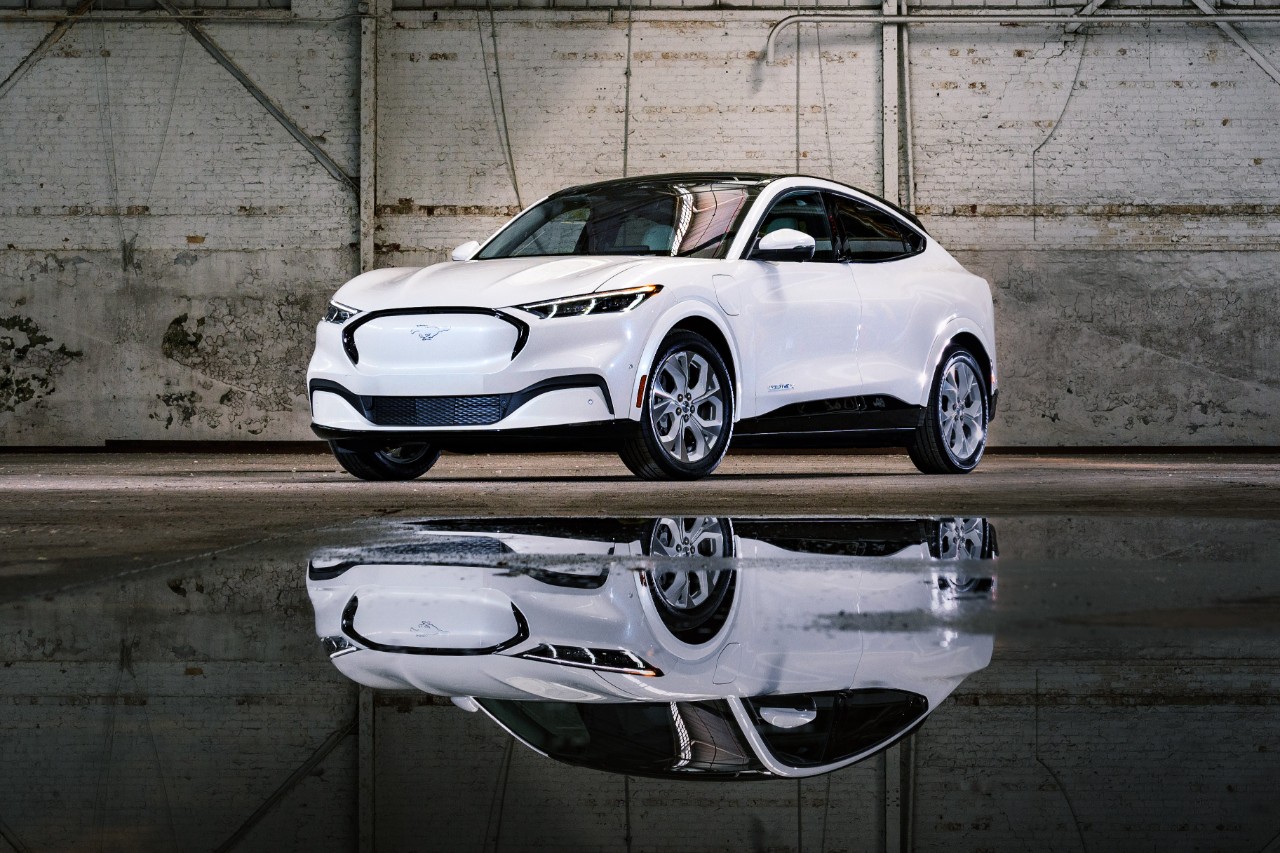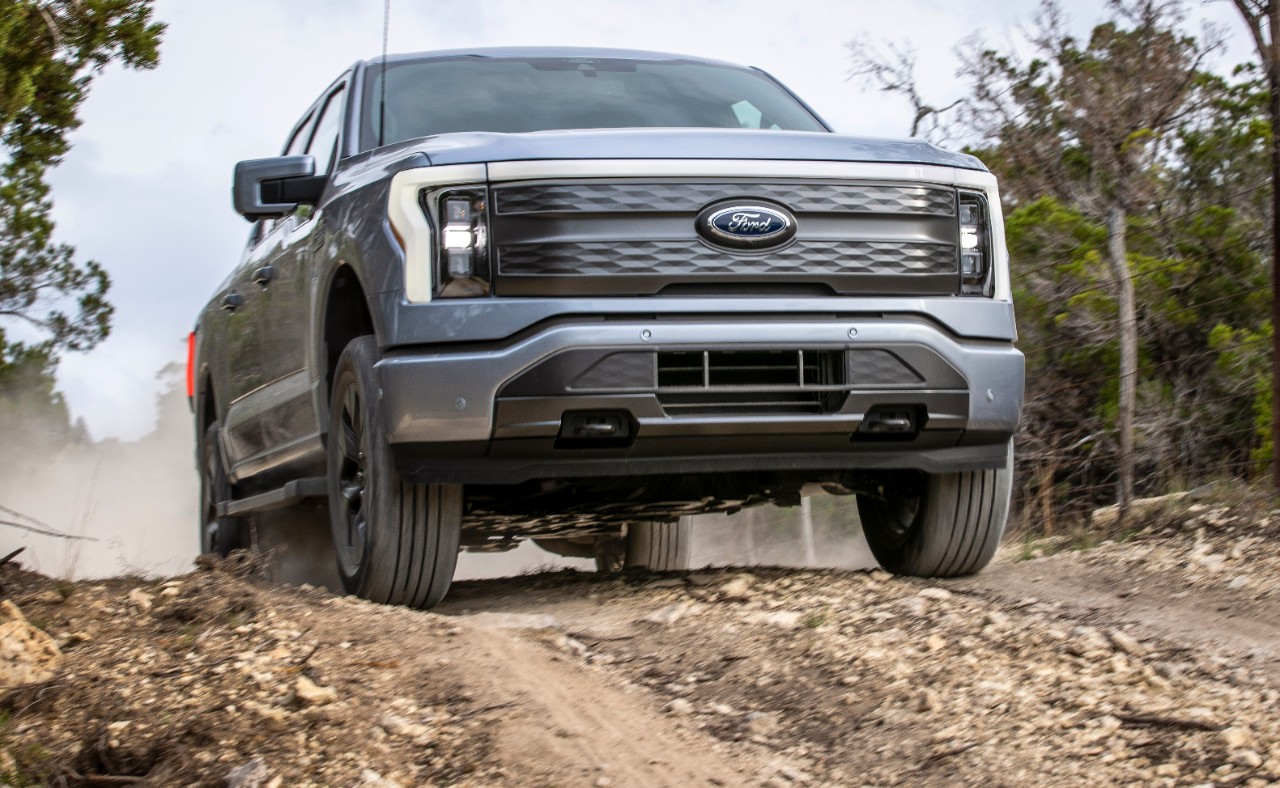Will companies like Tesla (TSLA 0.16%) and the new wave of electric vehicle start-ups "kill" the old global automakers? Or will big auto be able to reinvent itself and continue to thrive as the world transitions to zero-emissions vehicles?
That's the question auto investors have been debating for much of the last decade, ever since Tesla's Model S first launched to wide acclaim. Will companies like Ford Motor Company (F 1.52%) and General Motors (GM 0.12%) be able to adopt and master the new technologies that they'll need to compete with the likes of Tesla, or will the costs of change prove to be too high?
In this Motley Fool Live video, recorded on Aug. 5, Industry Focus host Nick Sciple and Motley Fool senior auto specialist John Rosevear ponder a version of that question, posed by a viewer -- and they conclude that the answer has now become clear.
Nick Sciple: Vivian asked, "Do you think that traditional automakers will be able to, 'Kill their own product with their electric vehicle options.' What kind of challenge that presents? Are they able to convert factories or is there a big difference between an electric vehicle factory and internal combustion engine factories?" Let's maybe take these in turns. The ability or the challenge of shifting over your product base from internal combustion over to electric, what kind of challenge does that present to these automakers from an expense point of view, profitability point of view, all that sort of thing?
John Rosevear: Well, here's an interesting analogy, and this is actually one that the Ford people talk about a lot. A decade ago, maybe more like 15 years ago, if you ordered a pickup truck, you probably got a V8, only the really cheap ones had V6s. Then Ford started rolling out these turbo V6s that had much better fuel economy. I mean, we're talking the difference between like 15 and 19 miles per gallon, but on a fleet of trucks, that's a big deal. What happened was that Ford positioned the EcoBoost trucks as a better product and they packaged it as such, and they made sure it was. "Here, we've got plenty of trailer towing capacity, we've got plenty of durability. It's cheaper to run and it's cheaper to own and it does everything you need." What happened was Ford truck enthusiasts, by and large, they tried these trucks and said, "Wow, these are actually really nice." Now you see people lining up for the 2.7 and 3.5 EcoBoost engines. Ford says it's going to be like that. They use that as a mental model. We're going to roll out the electric trucks. Some people will try them, some people will say, "No, I'm not ever driving an electric truck." The same way a decade ago, they would say, "No, I'm not ever driving some V6 truck." But they will sell themselves. We do the products right, they will sell themselves. Certainly, they will sell themselves to commercial customers first, as the V6s did because they were cheaper to operate, and then they'll sell themselves over time. Ford does expect that over time they will cannibalize the internal combustion business.
Sciple: Yes. There is a marketing challenge when you look at the business challenge. As they invest in electric vehicles, invest in building out the F-150 Lightning at the same time, this is eating market share away from the traditional F-150. These drive a lot of profits for the company. What challenge is that, being able to support these new initiatives at the same time as you're sunsetting your real profit centers? Talk about how the challenges that presents for the companies and how they are trying to navigate that.
Rosevear: Well, a lot of them had said that either they have stopped developing internal combustion engines further, or that they plan to over the next year or two. What that means is that from now on, that tooling is paid for, those designs are paid for and they could just bang them out as long as there's demand. But they are putting the engineers, the research teams, the tech teams, the software teams on these new electric vehicles. In some cases at some companies, not so much GM and Ford, but some others, on plug-in hybrids as well. Toyota, of course, loves its hybrids. Toyota, on the other hand, has been a little slow with electric vehicles. But they're still spending plenty of money on the hybrids. But again, more on the electric side of the hybrid than on the internal combustion side of the hybrid. At the same time, in terms of manufacturing, the most expensive tooling to make a vehicle, are the big presses that make the sheet metal, that bang the sheet metal into shape, they have to be custom-made for every vehicle, they wear out over time. It's weeks of work to make one, etc. That doesn't change, those machineries don't change when you're building an electric F-150 or a GM truck or anything else. Tesla does the same thing with these machines. They're using the same technology. That's a lot of the expensive stuff. Yes, there is money spent to make internal combustion engines, there will also be money spent to wind electric motors. Right now you see, at both GM and Ford, they're scaling down one while they scale up the other. It's incremental over time. Certainly the buildings won't change. A lot of the tooling, the robots, and so forth, they have in there will be repurposed and reused. I mean, there is a shift in how you make electric vehicles, but it's not like they have to throw out 150 factories around the world and build complete new ones at all. A lot of it does transfer. It's an incremental step change, not a wholesale change.
Sciple: Yes, I think when you think about the factories, the production line is going to look mostly the same as far as the arms putting together the different parts of the vehicle and putting the doors on and the steering wheel, and whatever. Where will be different is there's a part where you have to drop the engine in and you're going to drop a big old battery pack in or you're going to drop in electric motors and things such as that. It changes some of the steps in the supply chain, and obviously, the suppliers that go into making the motors, not a great day for them when everything moves over to EV.
Rosevear: But even then you've already seen the industry anticipat it, I mean, there was a big supplier Delphi, that was spun out of GM many, many years ago. They [Delphi] split their own business into two parts. One of which was the legacy internal combustion parts making business. The other one is Aptiv, which we know, which made all the cool sensors and stuff that will continue to carry on and actually be a larger business as driver assist and eventually self-driving systems become more common. You've seen that in a number of suppliers, Veoneer was spun out of a big European supplier, for instance. There are several others that have done this, that have split their businesses between old and new. The industry has been thinking this through for a while. This isn't like today is the starting line, the starting line was way back, and today is just the day they get some more support.










